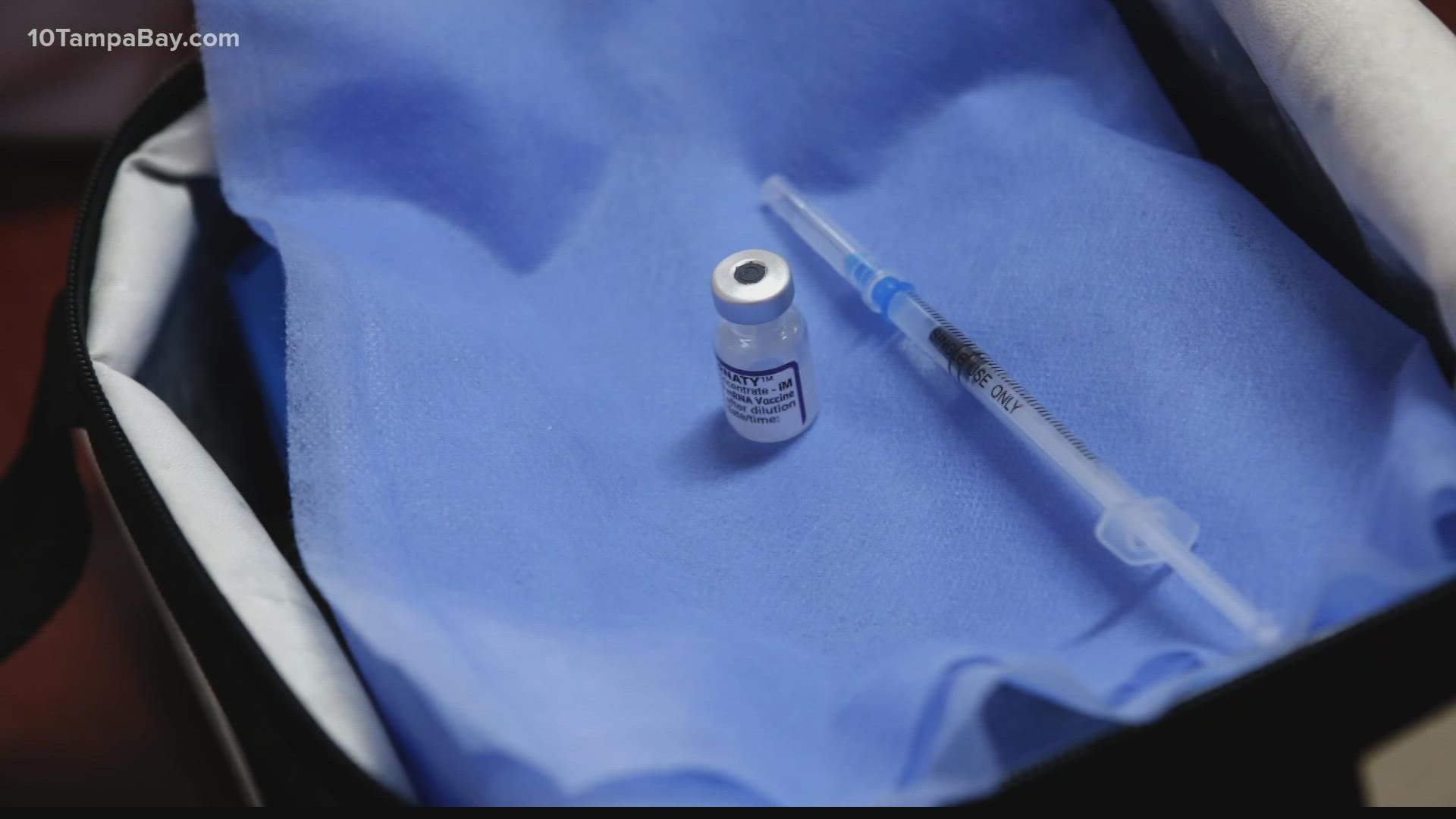TAMPA, Fla — People who are vaccinated either received two doses of Moderna or Pfizer, or one dose of Johnson & Johnson.
For those who are immunocompromised, health experts recommended they get a third dose as a booster shot.
"The boosters aren’t for everyone, they’re designed for people who they consider to be high risk," the Director of the Physician Assistant Program at Florida Gulf Coast University, Robert Hawkes, stated.
Some who are immunocompromised have shown to gain little to no immunity from the COVID-19 vaccine.
"Instead of 95 percent like me and you have coverage, they have anywhere from 0 to 40 percent," the Chief of Infectious Disease at Moffitt Cancer Center, John Greene, explained.
Greene said for those who are immunocompromised have a hard time gaining immunity, even after a third dose.
"At some point, there will be people, that no matter how many doses you give them, they won’t mount an antibody response," Greene explained.
The CDC is now allowing a fourth dose for certain people who are immunocompromised. The CDC says, six months after getting the third shot, some will be eligible for a fourth.
CBS News explains federal health guidelines will allow a few million Americans with compromised immune systems to eventually get a fourth dose as early as next year. People who are eligible include those people who are taking medication that can suppress their immune systems for organ transplants or those who have cancer.
If you're healthy and don't have an underlying condition, health experts say you don't need an additional dose right now. It's only recommended people get "booster" shots if they are high risk.
Health experts say eventually you'll need another dose.
"I’m assuming at some point, the CDC will change that recommendation and allow it for everyone," Hawkes stated.
Hawkes said it's likely people will need another shot as antibodies will wear off.
"There’s probably going to be a vaccine for COVID-19 that’s going to allow us to get it on a regular basis," Hawkes said. "We know the viruses do change, certain mutations, we’ve seen what the delta variant can do. The reality is, there’s going to be more variants as we continue to move forward throughout the years."
Hawkes predicts it's likely people will get a yearly COVID-19 vaccine like they do with the flu shot, but when?
Right now, health experts can't say for sure, as that will be a decision the CDC will likely make. Some estimate maybe in four to six months the CDC could recommend another COVID shot for everyone. That would be one that could become a yearly recommendation.

